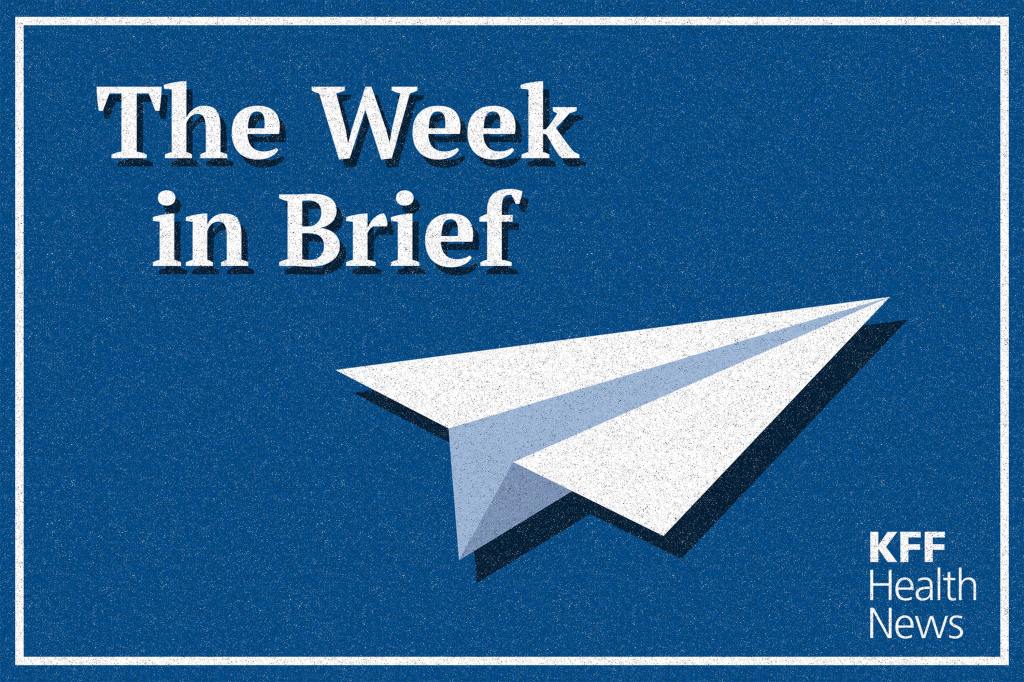When people call large insurance brokerages seeking free assistance in choosing Medicare Advantage plans, they’re often offered assurances such as this one from eHealth: “Your benefit advisors will find plans that match your needs — no matter the carrier.”
About a third of enrollees do seek help in making complex decisions about whether to enroll in original Medicare or select among private-sector alternatives, called Medicare Advantage.
Now a blockbuster lawsuit filed May 1 by the federal Department of Justice alleges that insurers Aetna, Elevance Health (formerly Anthem), and Humana paid “hundreds of millions of dollars in kickbacks” to large insurance brokerages — eHealth, GoHealth, and SelectQuote. The payments, made from 2016 to at least 2021, were incentives to steer patients into the insurer’s Medicare Advantage plans, the lawsuit alleges, while also discouraging enrollment of potentially more costly disabled beneficiaries.
Policy experts say the lawsuit will add fuel to long-running concerns about whether Medicare enrollees are being encouraged to select the coverage that is best for them — or the one that makes the most money for the broker.
Medicare Advantage plans, which may include benefits not covered by the original government program, such as vision care or fitness club memberships, already cover more than half of those enrolled in the federal health insurance program for seniors and people with disabilities. The private plans have strong support among Republican lawmakers, but some research shows they cost taxpayers more than traditional Medicare per enrollee.
The plans have also drawn attention for requiring patients to get prior authorization, a process that involves gaining approval for higher-cost care, such as elective surgeries, nursing home stays, or chemotherapy, something rarely required in original Medicare. Medicare Advantage plans are under the microscope for aggressive marketing and sales efforts, as outlined in a recent report from Sen. Ron Wyden (D-Ore.). During the last year of the Biden administration, regulators put in place a rule that reined in some broker payments, although parts of that rule are on hold pending a separate court case filed in Texas by regulation opponents.
The May DOJ case filed in the U.S. District Court for the District of Massachusetts alleges insurers labeled payments as “marketing” or “sponsorship” fees to get around rules that set caps on broker commissions. These payments from insurers, according to the lawsuit, added incentives — often more than $200 per enrollee — for brokers to direct Medicare beneficiaries toward their coverage “regardless of the quality or suitability of the insurers’ plans.” The case joins the DOJ in a previously filed whistleblower lawsuit brought by a then-employee of eHealth.
“In order to influence the market, the Defendant Insurers understood that they needed to make greater, illicit payments in addition to the permitted (but capped) commissions,” the lawsuit alleges.
In one example cited, the lawsuit says insurer Anthem paid broker GoHealth “more than $230 million in kickbacks” from 2017 to at least 2021 in exchange for the brokerage to hit specified sales targets in payments often referred to as “marketing development funds.”
Insurers and brokers named in the case pushed back. Aetna, Humana, Elevance, eHealth, and SelectQuote each sent emailed statements to KFF Health News disputing the allegations and saying they would fight them in court. EHealth spokesperson Will Shanley, for example, wrote that the brokerage “strongly believes the claims are meritless and remains committed to vigorously defending itself.” GoHealth posted online a response denying the allegations.
The DOJ lawsuit is likely to add to the debate over the role of the private sector in Medicare with vivid details often drawn from internal emails among key insurance and brokerage employees. The case alleges that brokers knew that Aetna, for example, saw the payments as a “shortcut” to increase sales, “instead of attracting beneficiaries through policy improvements or other legitimate avenues,” the lawsuit said.
One eHealth executive in a 2021 instant message exchange with a colleague that is cited in the lawsuit allegedly said incentives were needed because the plans themselves fell short: “More money will drive more sales [be]cause your product is dog sh[*]t.”
The DOJ case focuses on large insurance brokerages, which often rely on national marketing efforts to gain customers, rather than mom-and-pop insurance offices.
The filing, which alleges violations under the federal False Claims Act, outlines some of the problems consumers could face because of those payments, including being enrolled or switched into plans without their express permission, and getting coverage that didn’t meet their needs.
A cancer patient, for example, was switched from the original Medicare program into a private-sector managed-care plan by a large brokerage firm, according to the lawsuit, only to get hit with $17,000 in ongoing treatment costs that would have been covered without the change. Another person calling for free advice later discovered she had been enrolled without permission into a plan with a different insurer than she had previously chosen.
Meanwhile, people with disabilities looking to enroll in private-sector Medicare Advantage plans had their calls ignored or rerouted by systems designed to weed out disabled people, especially if they were under age 65, the lawsuit alleges. That’s because the insurers knew that disabled beneficiaries usually cost more to cover than those without medical problems, the case alleges. Medicare plans are not allowed to discriminate against people with disabilities.
Still, private insurers are allowed to offer commissions to brokers — or not.
Congress and regulators, however, concerned about insurers’ potential financial influence over beneficiaries’ choice of plans, set maximum commissions and limited payments for other things, such as administrative costs, to a vaguer standard: their fair market value. (Under the Biden-era rule that’s on hold, administrative fees would have been capped at $100 per enrollment.) On commissions, the national cap in 2021 — the final year cited in the lawsuit — was $539 per enrollment for the initial year, with higher amounts in some states, including California and New Jersey, the lawsuit said.
The allowed commission rates have risen to a maximum in the low $600s per person in most states this year. Those amounts are higher than what brokers earn if a client enrolls in original Medicare and buys a supplemental drug plan, for which the commission is capped at $109 for the initial year.
Some policy experts say that pay structure alone — aside from any of the allegations in the lawsuit — creates an uneven playing field between the private-sector plans and the original program.
“It’s not my intent to paint all agents and brokers with the same brushstroke, but there are significant financial incentives to steer people toward Medicare Advantage in general,” said David Lipschutz, co-director of law and policy at the Center for Medicare Advocacy.
While brokers can be helpful in sorting out complexities, other options are available. Lipschutz suggested that consumers seek information from their federally funded State Health Insurance Assistance Program, which can advise beneficiaries about Medicare options, are not affiliated with insurers, and don’t receive commissions.
While encouraged that the Trump administration filed the case under investigations that began under the Biden administration, policy experts say Congress and insurers need to do more.
“What we see in this lawsuit highlights the terrible incentives that desperately need Congress to reform,” said Brian Connell, a vice president at the Leukemia & Lymphoma Society, an advocacy group.
Right now, however, Congress is embroiled in budget battles amid calls by the Trump administration to drastically cut federal spending.
“It doesn’t seem like it’s high in the queue,” said Zachary Baron, director of the Center for Health Policy and the Law at Georgetown University’s O’Neill Institute. Some members of Congress may push for more changes to Medicare Advantage, Baron said, “but the real question is whether there will be bipartisan interest.”
The large amounts of money that the lawsuit alleges were involved, though, might add legislative momentum.
“This is money not being spent on care, money not going to providers of health care services,” Lipschutz said. “In my mind, it’s a lot of wasted payment. It’s pretty staggering.”
KFF Health News is a national newsroom that produces in-depth journalism about health issues and is one of the core operating programs at KFF—an independent source of health policy research, polling, and journalism. Learn more about KFF.
USE OUR CONTENT
This story can be republished for free (details).








